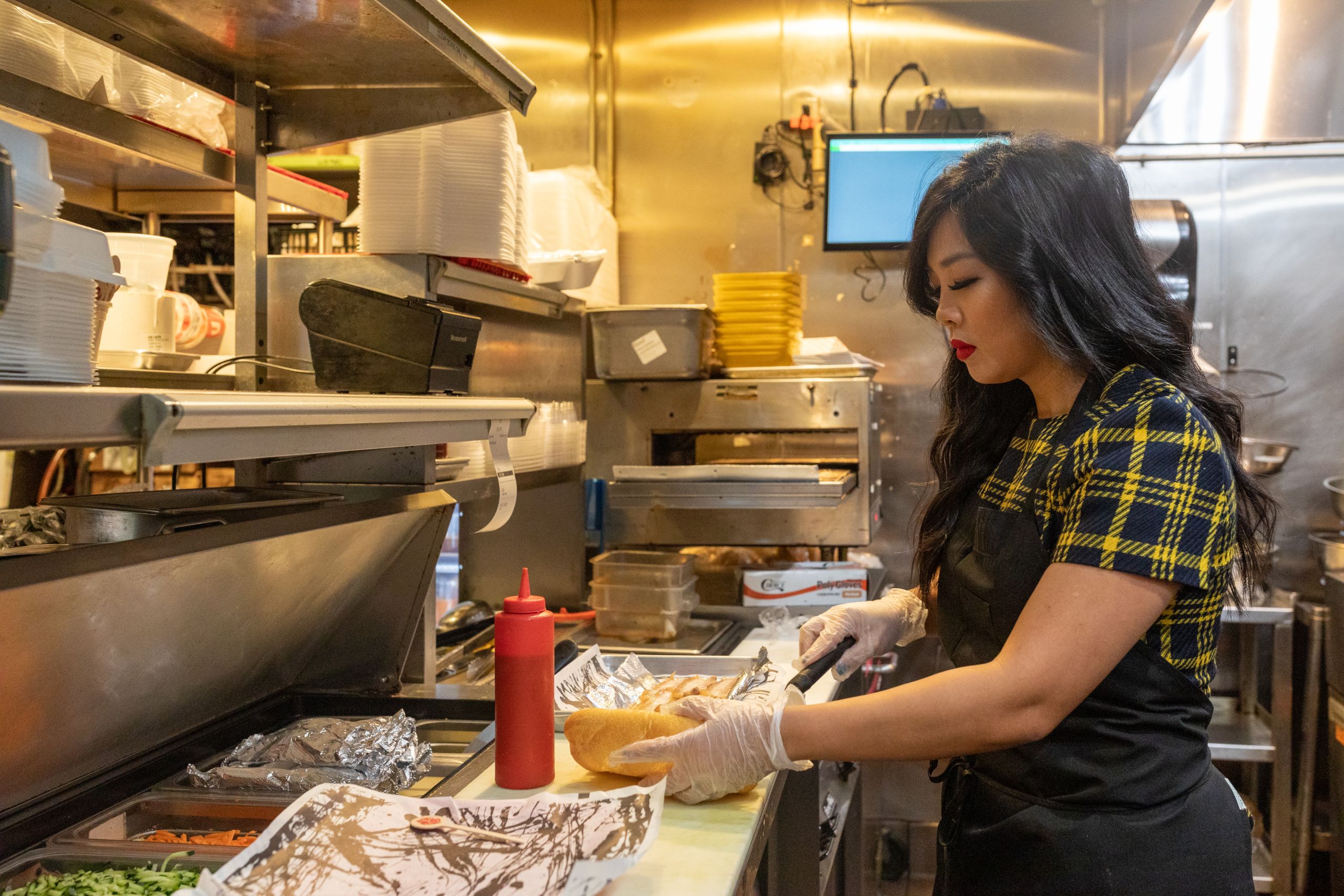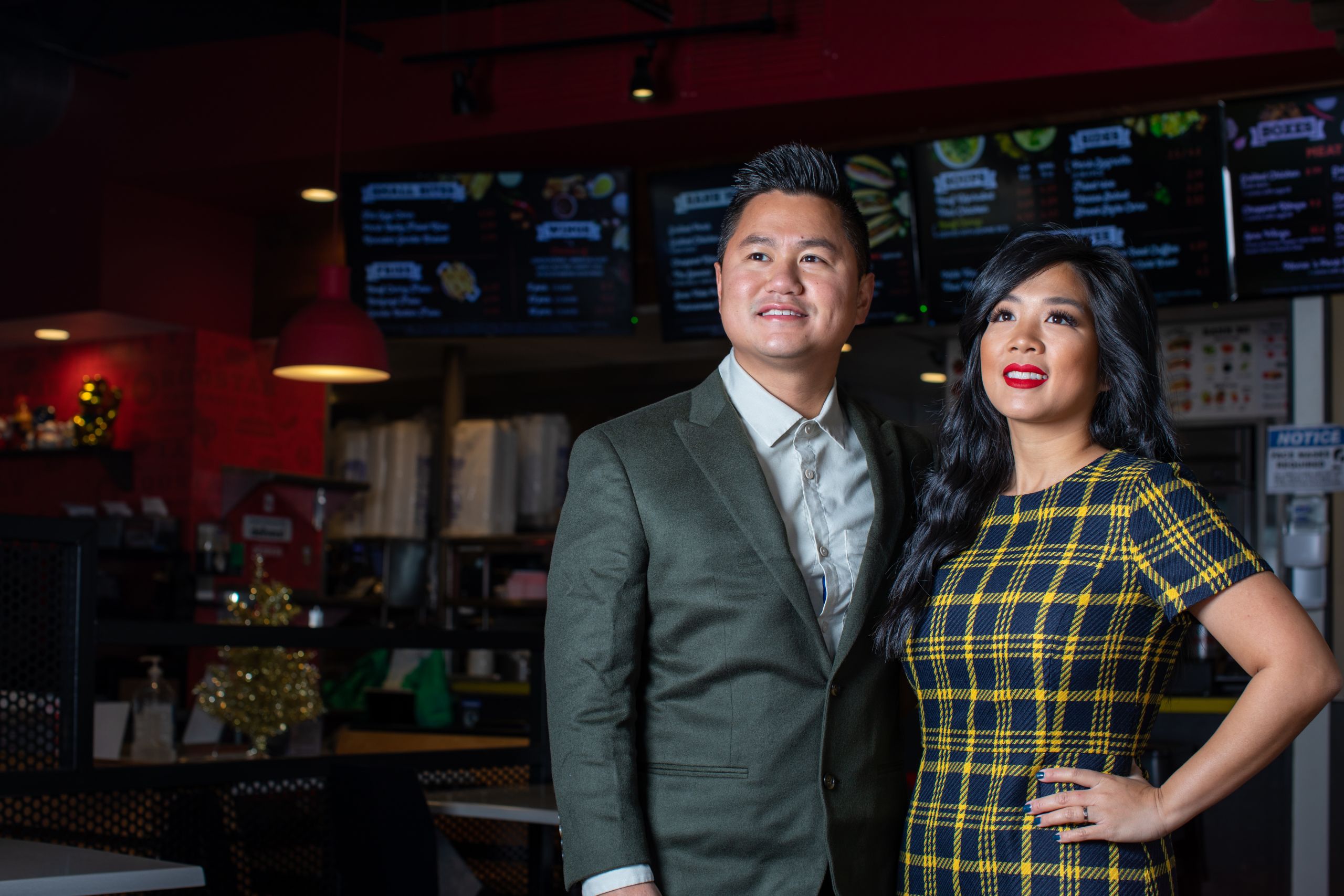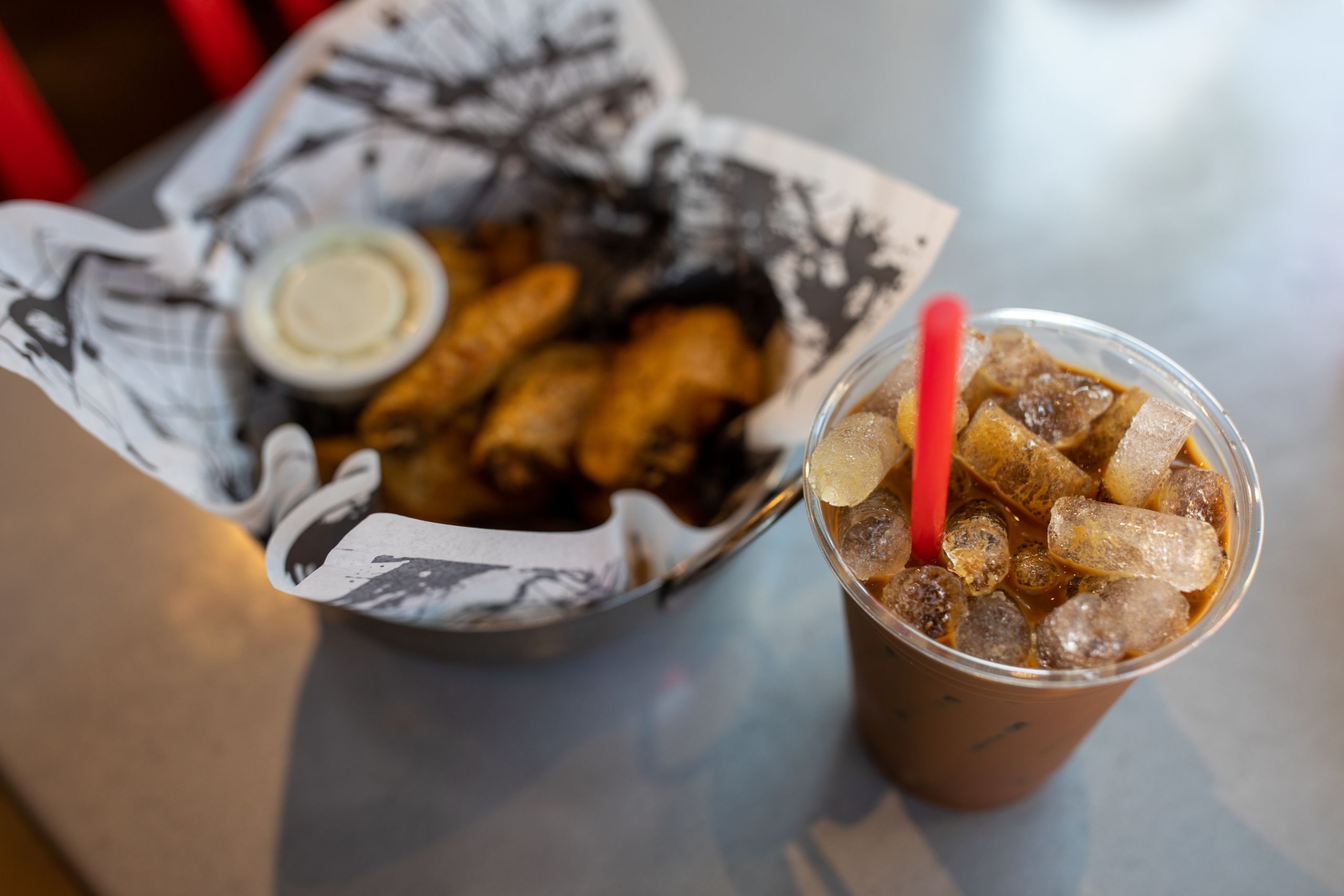EAT ‘EM UP, COOGS
UH Alumni Restaurateurs Draw Inspiration from Family Roots and Recipes
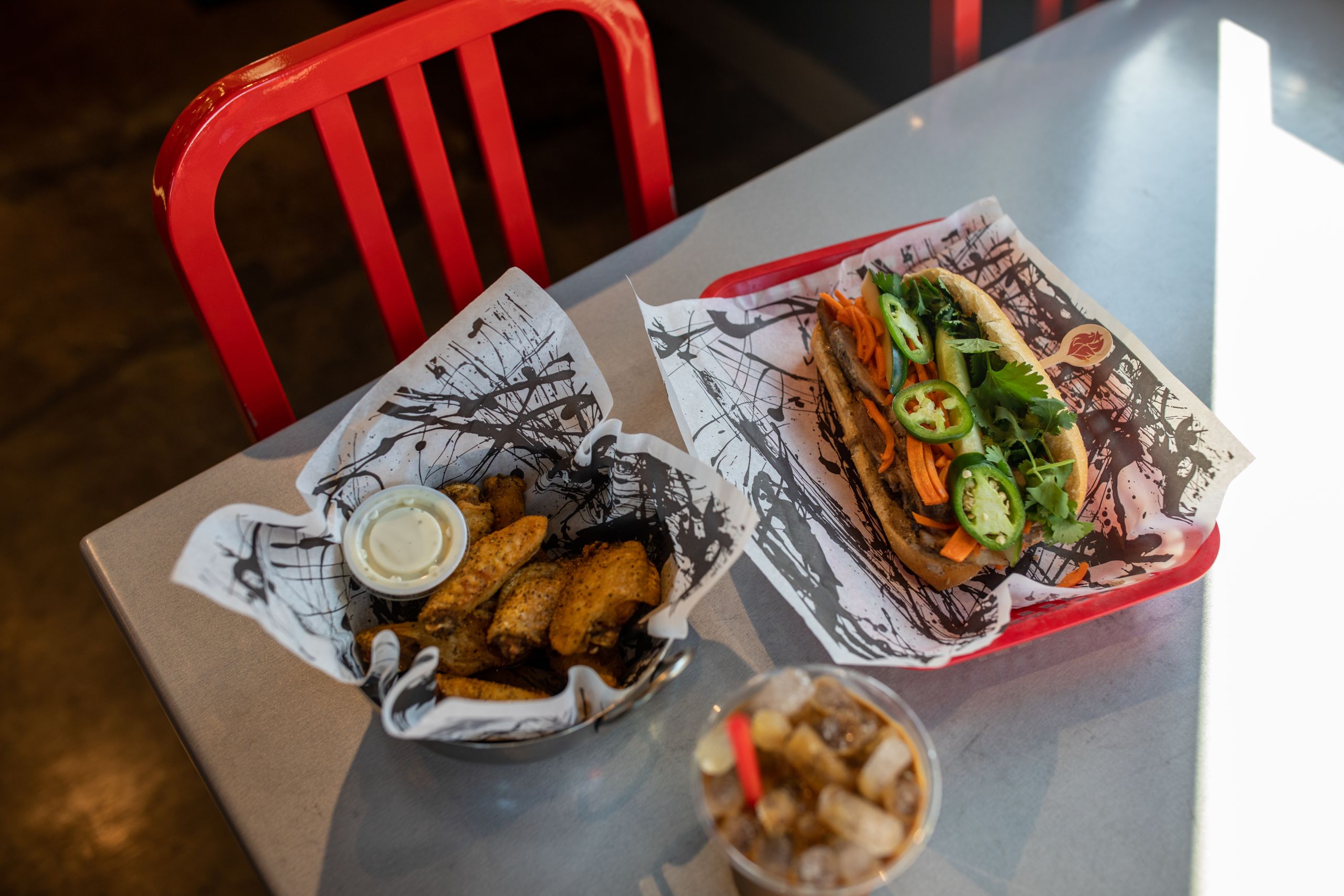
From weathering lockdowns and capacity limits to industry-wide layoffs, Houston restaurateurs are pushing the bounds of creativity amid adversity, struggling for post-pandemic survival.
We sat down with a talented group of University of Houston “Forever Coog” restaurateurs who continue to blaze trails in the Houston food scene. Christine Hà (MFA ’13), Pedro “Pete” Mora (B.B.A. ‘03), and Ronnie Nguyen (B.S. ‘12) alongside his wife Linda Nguyen (B.S. ‘17) share more than just the same alma mater. Each keeps their familial and cultural roots at the heart of what they do.
Christine Hà (MFA ’13)
One of Christine Hà’s favorite childhood memories was watching her mother make fried Vietnamese spring rolls— the delicate pastry wrappers neatly filled with pork, shrimp and a mixture of mung bean noodles, woody mushrooms and other vegetables that had been marinating overnight. Her mother would carefully roll them and then gently drop them into a pot of hot oil, working batch by batch.
“She would cook them for special occasions like my birthday. I just couldn’t get enough of them because they were so easy to snack on,” said Hà, who could hardly stand the wait as spring rolls drained and cooled just enough to eat. However, it was her mom’s caramelized pork and eggs that literally changed the trajectory of Hà's life.
Hà gradually lost her sight between 1999 and 2007 due to an autoimmune disease, but the memories of her mother’s cooking remained vivid. The pork and egg dish was the dish she prepared to win the third season of MasterChef in 2012, while she was a graduate student in the University of Houston’s prestigious Creative Writing Program. It solidified her future as a restaurateur and was a shining moment she wishes her mother could have witnessed.
“My mom died when I was a teenager, and she didn’t get the chance to teach me her recipes,” explained Hà. “While I was an undergraduate student at UT-Austin, I bought some cookbooks, a cheap set of knives, pots and pans and taught myself how to cook. It was a lot of experimentation in the kitchen, not knowing what I was doing and not having a mom to ask questions.”
Há’s star has been on the rise since her MasterChef win. She graduated from UH with her master’s degree in 2013, authored a New York Times best-seller, Recipes from My Home Kitchen, and opened two Vietnamese restaurants with her husband, businessman John Suh, during the pandemic. The James Beard Foundation named her restaurant The Blind Goat, located in downtown Houston’s Bravery Chef Hall, a semifinalist for 2020 Best New Restaurant in America. Her latest venture, Xin Chào, recently opened its doors in Houston’s Old Sixth Ward Historic District. And to bring things full circle, diners at Xin Chào will find that braised pork and crispy rice entrée from MasterChef on the menu.
When she puts on her apron and steps into the kitchen to prepare customers a meal, Hà says she can feel her mother’s spirit. Success for Hà means more than being MasterChef, author or restaurateur.
“I feel like now my life is on this trajectory to inspire people. It’s intertwined with this larger vision of what purpose I serve on this earth.”
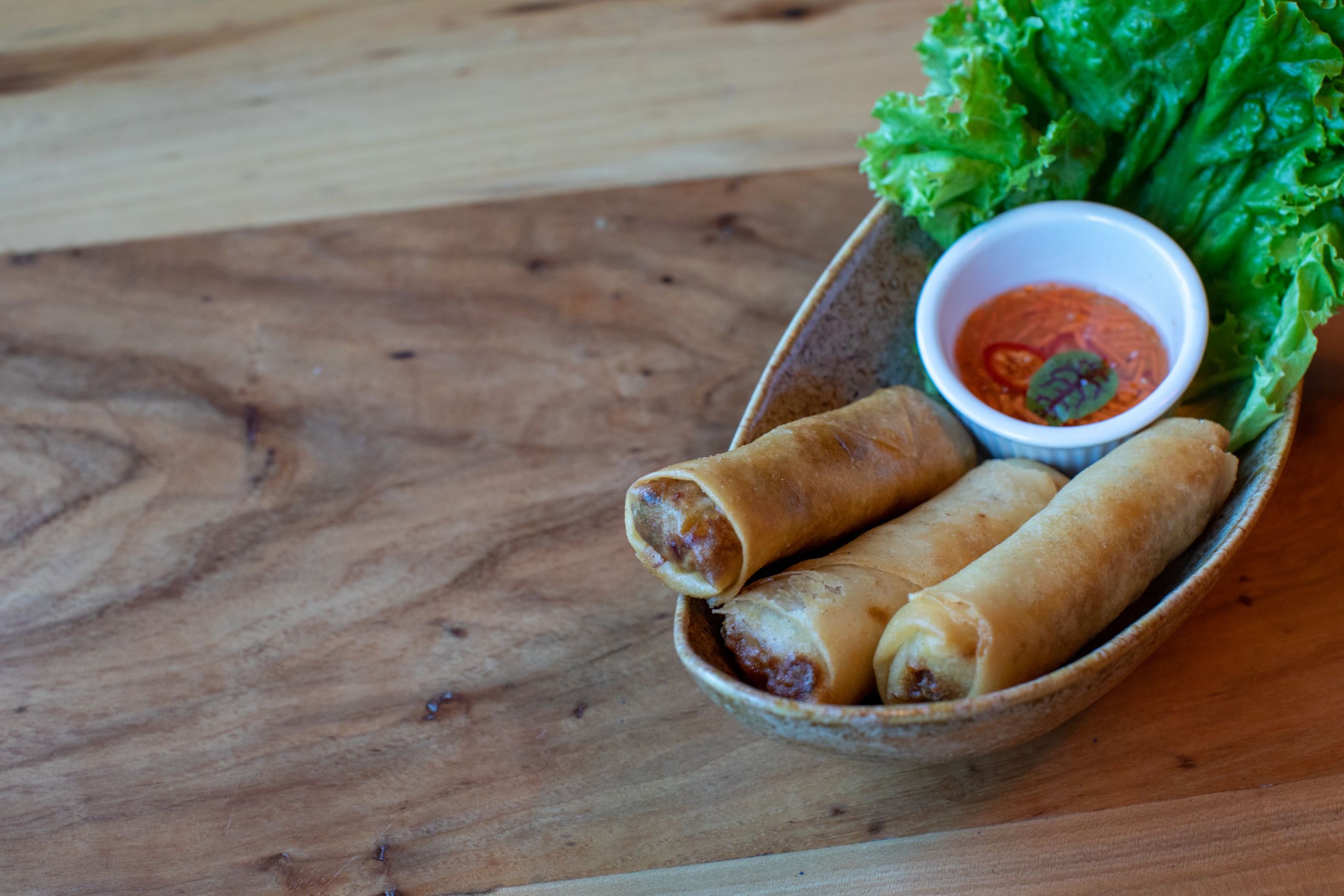
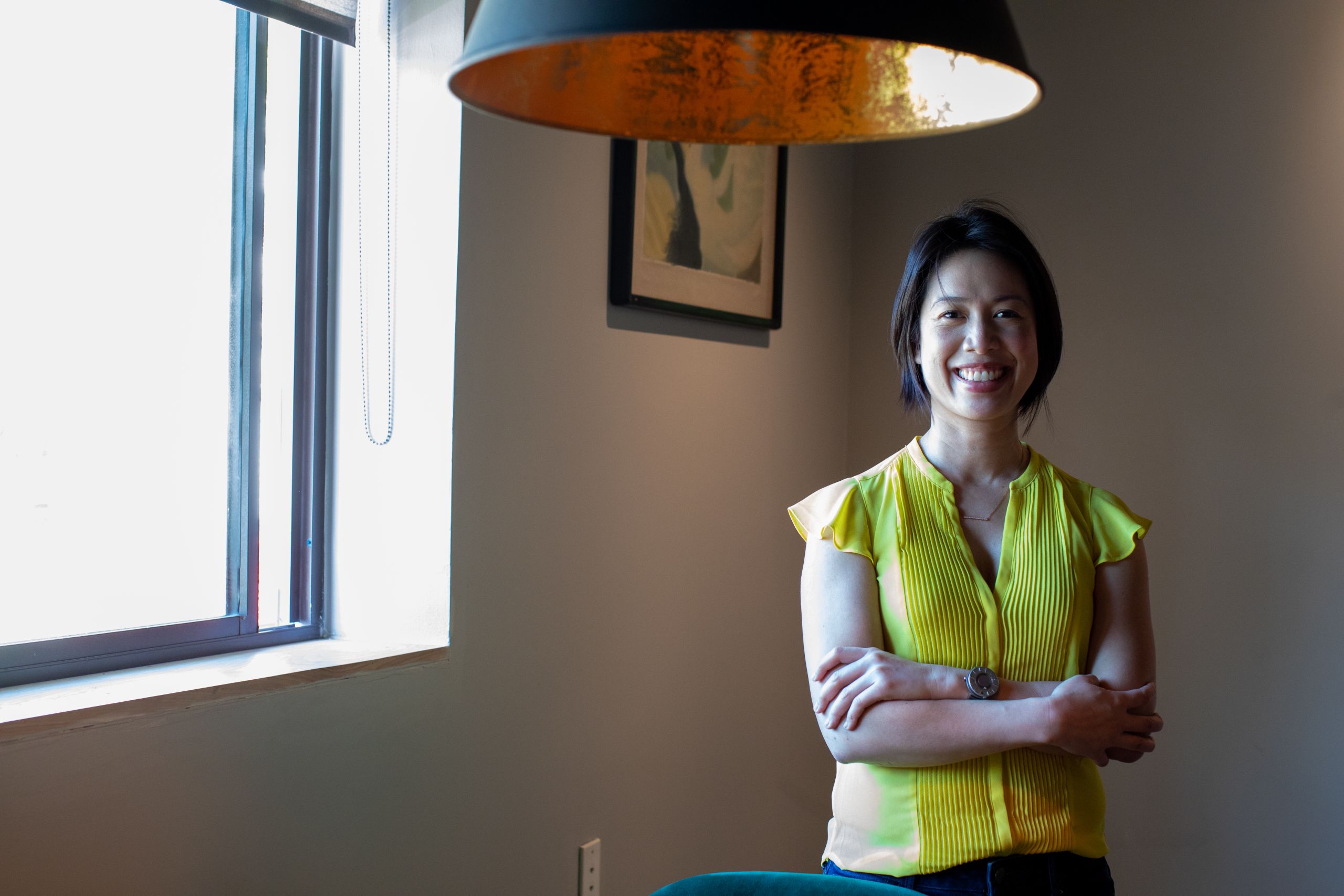
Pedro “Pete” Mora (B.B.A. ‘03)
Pedro Mora learned at a very young age the importance of being your own boss. Growing up the youngest of three children during the civil war in Colombia, he witnessed both the successes and struggles his parents faced as owners of a transportation company. Mora vividly recalls what his mother told him when the family fled to Houston in the late 1980s.
“We are not bringing you to America to fill out applications,” Mora recalls his mother saying. “My mom always told us we need to be self-employed.”
And those words have been the driving force behind Mora’s success as owner of Fajita Pete’s, a Tex-Mex catering and delivery franchise based in West University. His business model is about efficiency and simplicity– which was taught to him at the University of Houston’s Center for Entrepreneurship and Innovation – now known as The Cyvia and Melvin Wolff Center for Entrepreneurship, the No. 1 undergraduate entrepreneurship program in the nation.
Before graduating in 2003 with a bachelor’s degree in business administration, Mora set in motion his first Mexican restaurant, Poblano’s, in Houston’s Meyerland neighborhood. It had 60 tables and a full bar. But Mora realized that having a full-service restaurant was not part of his long-term plan.
“While I had Poblano’s, I was looking for additional revenue streams, so I got into catering,” he said. “That was a business model I could multiply. All I needed was a kitchen and a car.”
In 2008, Mora’s conceived what would become a winning concept: Deliver a scaled-down menu of fajitas, tacos and flautas to the people. He closed Poblano’s and opened Fajita Pete’s. Two weeks later Hurricane Ike hit. Fearing a loss of power, Mora cooked what was in the cooler and managed to feed 90 families who were without electricity in the aftermath of the storm. In an instant Fajita Pete’s became a household name.
"We all have to believe we are in the top 15%. If not, then don’t get out of bed."
For someone who grew up enjoying his grandmother’s Ajiaco or chicken soup and a traditional breakfast of Bistec a Caballo or steak with fried eggs, Mora finds the similarities between Colombian and Mexican food fascinating.
“We were always meat eaters. In Colombia we had a farm, and my dad was a hunter,” Mora explained. “If you didn’t have a meal with meat, it really wasn’t considered a meal.”
Fajitas are king, of course, on the Fajita Pete’s menu, but there are also tacos, enchiladas, burritos and flautas. Customers may pick up hints of Colombian flare in the beef that’s cooked in a blend of lime and pineapple, which serves as a natural tenderizer. The addition of tomato sauce gives his popular white rice a reddish tint.
For Mora, it’s about “achieving the American dream … one fajita at a time.”
The father of two is certainly living the American dream and making his parents proud. Over the past 12 years, Fajita Pete’s has expanded to nearly 20 locations in Texas with 40 stores awarded to current and new franchisees. The first stores out of state will be popping up in Kansas, Colorado and Oklahoma in the next few months. He recently sold 50% of his company to a private equity group – an accomplishment that makes Mora feel like his hard work is being recognized.
“People ask me how I made it in the restaurant business where 85% of people fail. I say ‘it’s because I keep getting up in the morning.’ I tell my employees that we all have to believe we are in the top 15%. If not, then don’t get out of bed. Meeting great partners like Joey Eguia and the investment group, along with having a great crew from the beginning, really helped me grow and get to the levels we are seeing today."
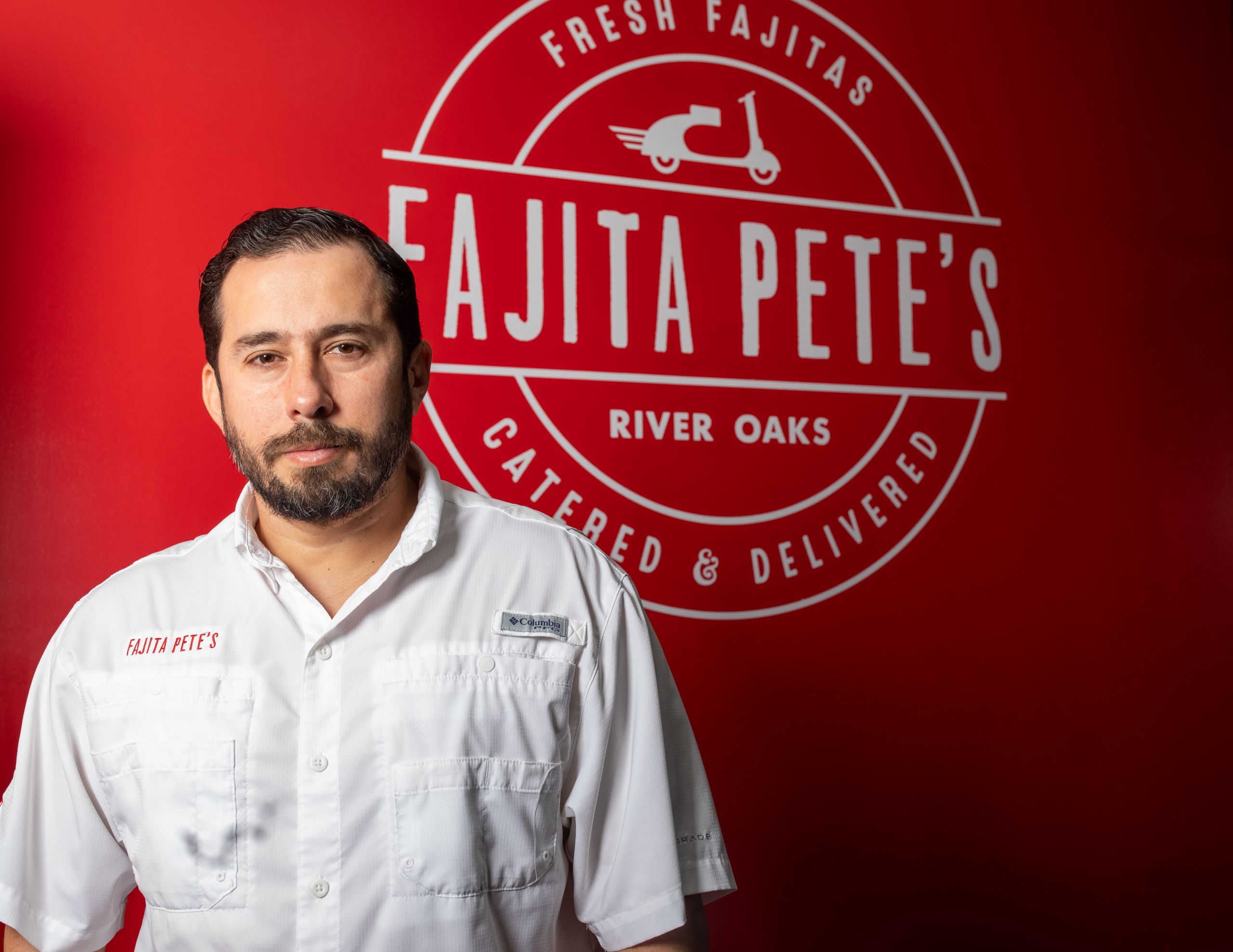
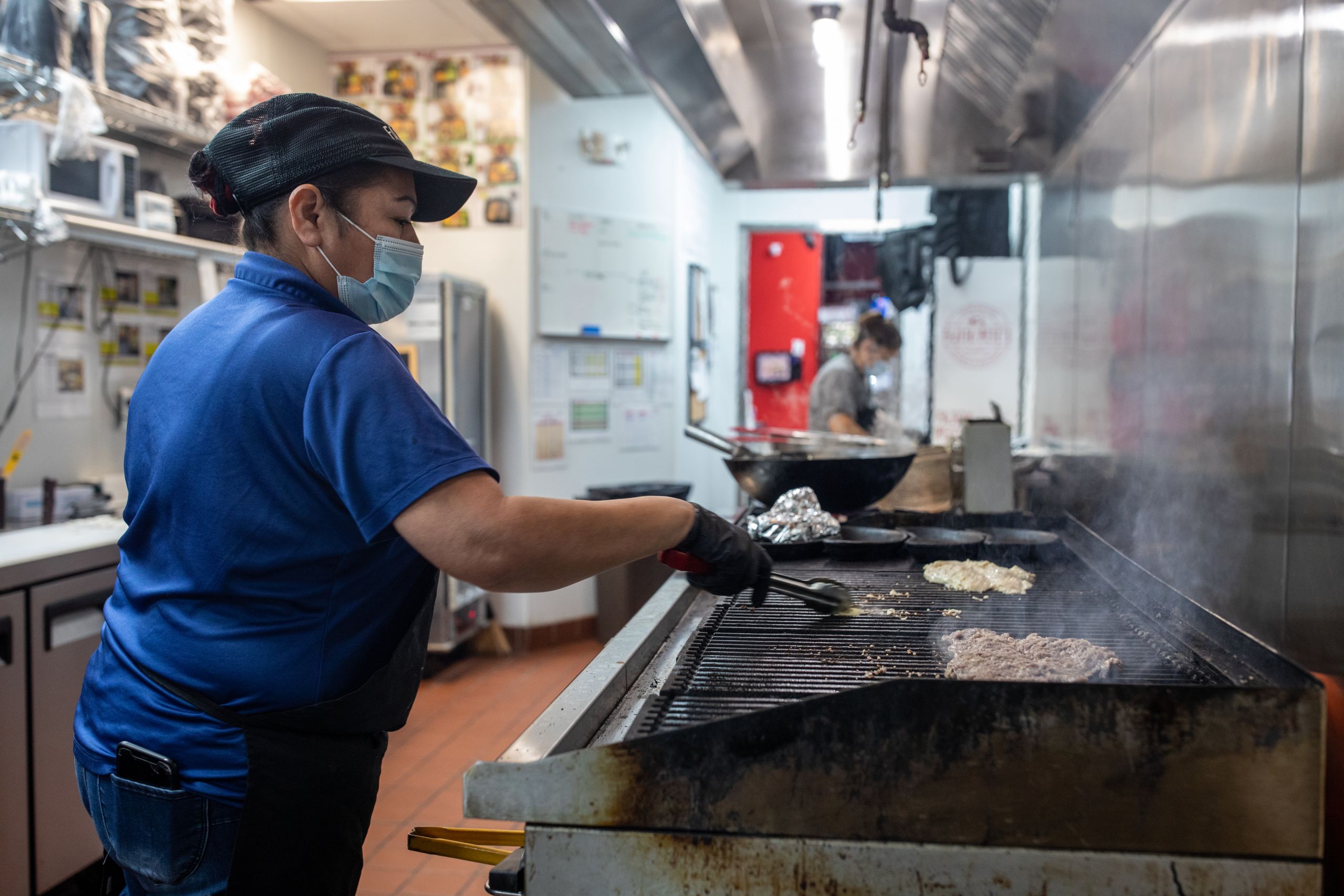
Ronnie (‘12) & Linda Nguyen (‘17)
For Hilton College alumni Ronnie and Linda Nguyen, working in the service industry is a family tradition. Ronnie’s mother, uncles and grandparents owned restaurants in Thailand and New Orleans. Linda’s grandmother had a sandwich shop in Vietnam, and growing up, Linda worked at her parent’s grocery store in Houston. Both learned how to cook, clean and engage with customers at a very young age.
The Nguyens, who met in 2005 through mutual friends, both earned Bachelor of Science degrees in hotel and restaurant management at UH. Their first business plan for a restaurant was the result of a class project, and from it, the couple’s first restaurant was born. Initially called Vietnam Poblano, Houstonians now know it as the bánh mì legend Roostar Vietnamese Grill. Custom bánh mì’s, a fusion of Vietnamese and French flavors featuring Vietnamese meats and vegetables tucked inside a crusty French baguette, are served alongside rice and noodles. Roostar’s flavors and brightly colored dining rooms are a nod to the Vietnamese street vendor scene.
The couple now has locations in Spring Branch and The Galleria Area. A third location is set to open near where their restaurant journey began. In summer 2021, Roostar will have a location near UH in Houston’s East End.
Rooted in Roostar’s success are Linda and Ronnie’s lifelong experiences — from stocking shelves to honing valuable managerial experience and business acumen. And, of course, the prized family recipes that dot the menu. Ingredients are made from scratch in-house – from the pickled garnishes and marinades … even the garlic aioli. If you ask Ronnie what a customer favorite is, he would say the lemon pepper wings his uncle taught him to make while he was in junior high. “The secret sauce in the wings are a great seller. There’s a little bit of Cajun mixed in it.”
And for Linda, it’s her mother’s Vietnamese iced coffee. Each time she pours a cup for customers, Linda is reminded of the times that nutty, hickory smell would lure her and her sisters out of bed in the early morning hours. Other items on the menu from her mother’s kitchen include pork belly and pate swaddled inside their famous special bánh mì.
“That’s why our patrons keep coming back and supporting us because they can get that feeling of home,” Linda explained.
“They will have a sip of the coffee and feel like ‘wow, it tastes just like how my mom makes it’.”
Roostar is on a roll. The Roostar Restaurant Group has produced eight years of consecutive growth, and since the pandemic began, digital sales have tripled. They have a branded mobile app partnered through HungerRush, a thriving corporate catering business and are crowdfunding in an effort to launch Roostar Factory, a commissary kitchen to scale the business and streamline operations for the growing business lines.
“We’ve built Roostar around our employees,” Ronnie explained. “Our priorities are staff, customer, community and then the bottom line. These priorities drive our decisions. It gives us our DNA and defines who we are.”
A communication by University of Houston Marketing and Communications.
Do you have a story idea you'd like to share with UH? Email us at stories@uh.edu.
We regret that we cannot respond to every submission.If your submission is a good fit, we will follow up with you directly.
